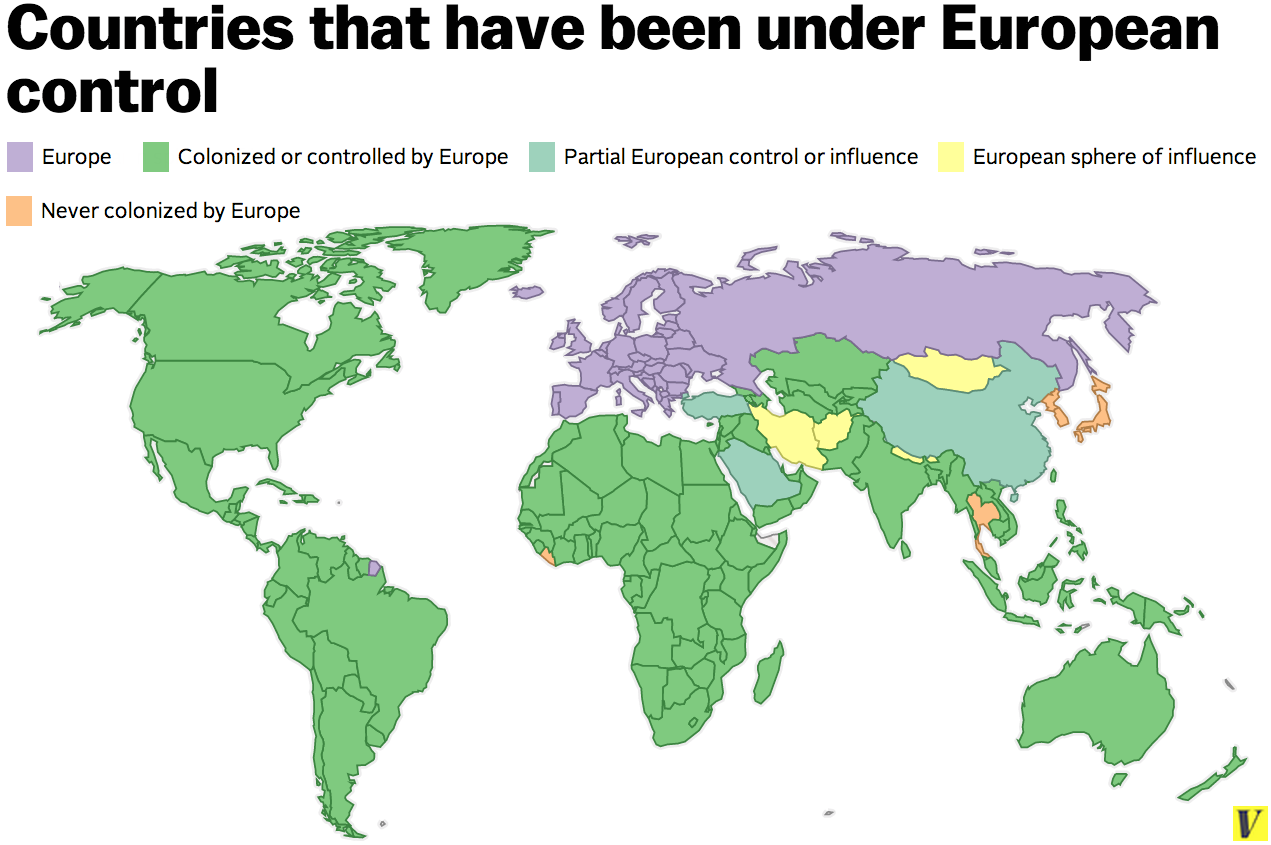Our Shadow Work includes Colonialism and Racism
This is the first part in a series on Colonialism, Racism, and Shadow Work. To read Part 2, please click here. To read Part 3, please click here. To read Part 4, please click here.
Shadow vs light, good vs evil, day vs night, inside vs outside. Multiple traditions around the world house dichotomies of this nature. Indeed, Hiranyakashipu was granted a boon of near immortality based on similar dichotomies. What these dichotomies do not take into consideration is that humans exist neither in the shadow, nor in the light. Neither as wholly good, nor as wholly evil. Instead, we exist as both on a spectrum. It is for this reason that we must engage in both our light work and our shadow work. You cannot have one without the other, and you cannot “be” without both.
NAMING THE SHADOW.
The idea of the shadow self was coined by Carl Jung. He used “shadow” to refer to the parts of our being that are hidden. The shadow can be parts of one’s self that we see as or believe to be repressed, sad, wounded, or in pain. We generally try to hide our shadow self from others, only to have the shadows pop out when we come in contact with something uncomfortable, or something that reminds us of the shadow experience. In Hinduism, we can think of shadow work as antardrishti, or ‘looking into one’s soul’.
In naming the shadow, Carl Jung said “Until you can make the unconscious conscious, it will direct your life and you will call it fate.”
Simply put, when we ignore or hide our shadows, we can have excessive reactions to stimuli that reminds us of them. Still, we try to repress the parts of ourselves that we think are “undesirable” and usually experience shame in sharing them with others. We generally think of this as hiding our emotions, or shadow experiences that may include abuse, self-hate, depression, etc.
This repression extends to the way we handle our relationship with racism and colonialism. In an Anglophonic world, one of a largely white population, discussions centred around racism and colonialism are taboo. The idea of speaking to skin colour is preposterous; “I don’t see [skin] colour.” Thus, whiteness treats race as a shadow - something not to be shared or seen. This affects all people, minoritized or not.
Our ancestral lines have lived under and with colonialism for centuries. Many of us (myself included) come from places that were colonized, and currently live in areas where the original Indigenous people of the land are still colonized. We’ve internalized this racist and colonialist state and it has become a part of our shadow self over the past hundreds of years. This shadow can be sad, helpless, angry, unloving, self-loathing, meek, powerless, hostile, guilty, apathetic, dispassionate, and more. It can freeze, fight and flee. It becomes difficult to speak to colonialism and racism because our bodies do not want to acknowledge and feel the discomfort of this colonial shadow.
When we feel forced to repress colonial and racist experiences, this part of our shadow can bubble up in a number of ways and situations. If we can’t acknowledge or speak to the situation in a way that keeps our body safe, we may express this discomfort in more visceral ways, using the flight, flee and freeze responses. I can still remember a moment when I left a room full of white folks in tears because the subject of racism was on the table. When I realized I had a single ally in the room, my emotions burst forth as if a dam had collapsed. I had no power over myself anymore, and instead, my shadow owned the moment. I didn’t feel safe and it took over and made me flee.
In the following weeks we’ll speak to colonialism and racism as shadow work - deep healing that must be felt through the body and mind. You can ask yourself the following questions as we get ready for a deep dive into colonialism and racism.
How do the words colonialism and racism make you feel? What emotions surface when you hear those two words?
Are you comfortable acknowledging racism and colonialism and how it has affected your day to day life? What kind of power or privilege, if any, do you hold because of colonialism and racism?
If you are on a colonized land, how does your history relate to this colonization?
When was the last time you did or thought something racist or prejudiced about another or yourself? Did you consciously have these thoughts/actions or did they arise subconsciously? What was your response on noticing these racist/prejudiced thoughts?


